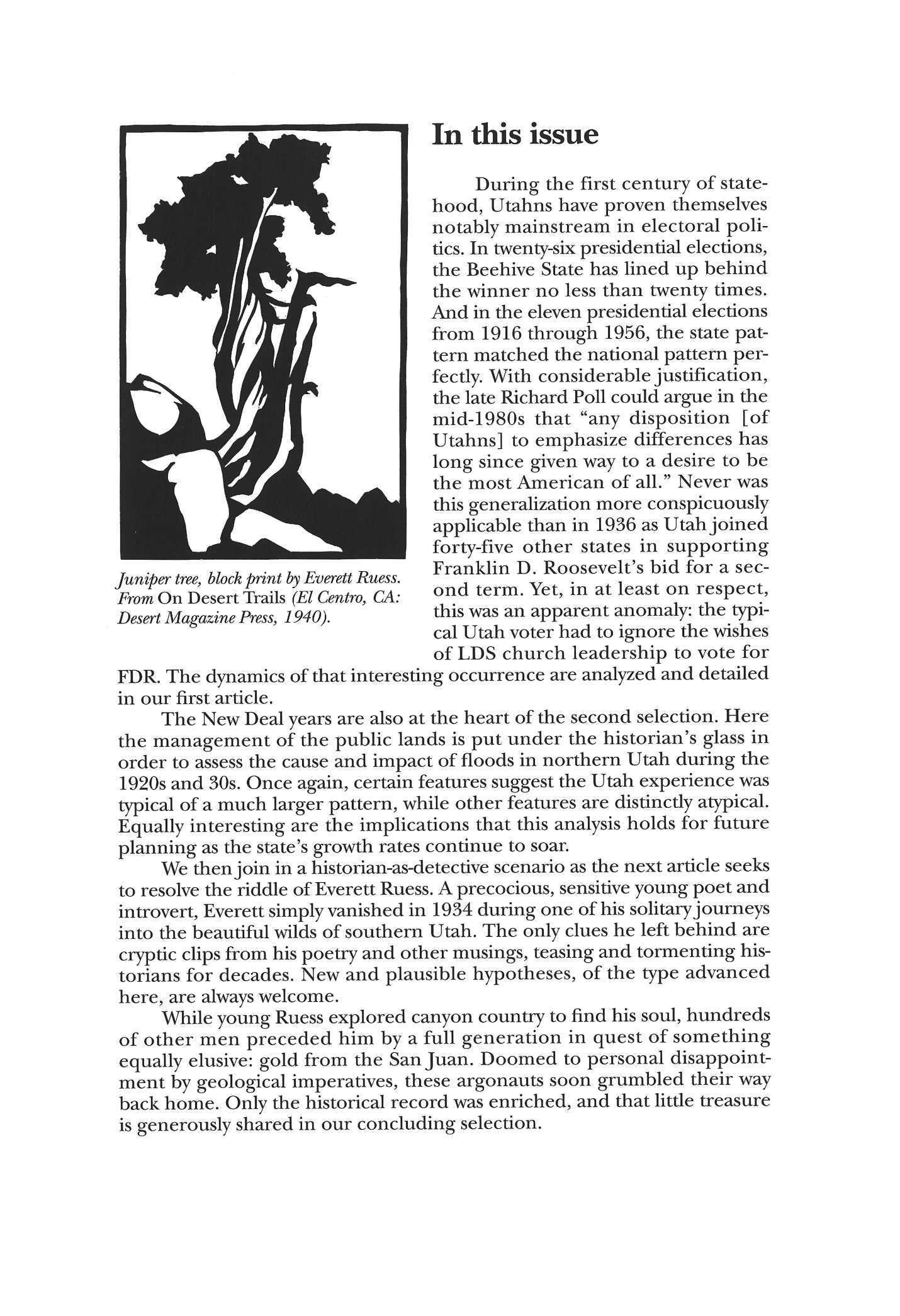
2 minute read
In This Issue
During the first century of statehood, Utahns have proven themselves notably mainstream in electoral politics. In twenty-six presidential elections, the Beehive State has lined up behind the winner no less than twenty times And in die eleven presidential elections from 1916 through 1956, the state pattern matched the national pattern perfectly. With considerable justification, the late Richard Poll could argue in the mid-1980s that "any disposition [of Utahns] to emphasize differences has long since given way to a desire to be the most American of all." Never was this generalization more conspicuously applicable than in 1936 as Utah joined forty-five other states in supporting Franklin D. Roosevelt's bid for a second term Yet, in at least on respect, this was an apparent anomaly: the typical Utah voter had to ignore the wishes of LDS church leadership to vote for FDR The dynamics of that interesting occurrence are analyzed and detailed in our first article.
The New Deal years are also at the heart of the second selection. Here the management of the public lands is put under the historian's glass in order to assess the cause and impact of floods in northern Utah during the 1920s and 30s. Once again, certain features suggest the Utah experience was typical of a much larger pattern, while other features are distinctly atypical. Equally interesting are the implications that this analysis holds for future planning as the state's growth rates continue to soar.
We then join in a historian-as-detective scenario as the next article seeks to resolve the riddle of Everett Ruess. A precocious, sensitive young poet and introvert, Everett simply vanished in 1934 during one of his solitary journeys into the beautiful wilds of southern Utah. The only clues he left behind are cryptic clips from his poetry and other musings, teasing and tormenting historians for decades. New and plausible hypotheses, of the type advanced here, are always welcome.
While young Ruess explored canyon country to find his soul, hundreds of other men preceded him by a full generation in quest of something equally elusive: gold from the San Juan. Doomed to personal disappointment by geological imperatives, these argonauts soon grumbled their way back home. Only the historical record was enriched, and that little treasure is generously shared in our concluding selection.







